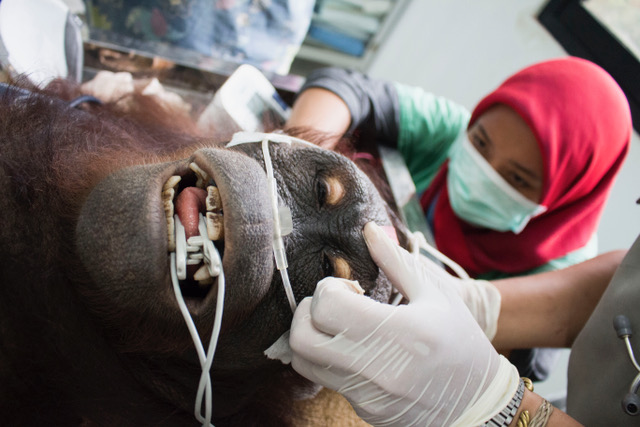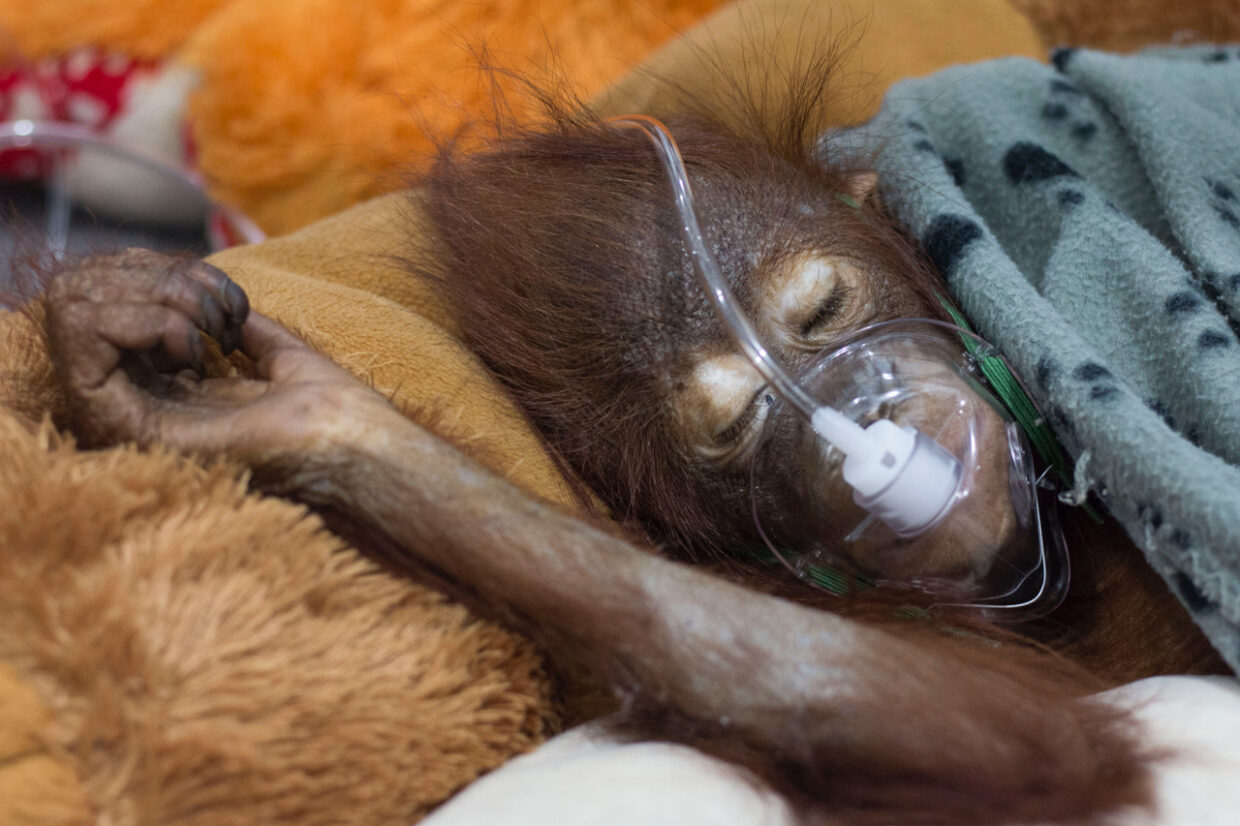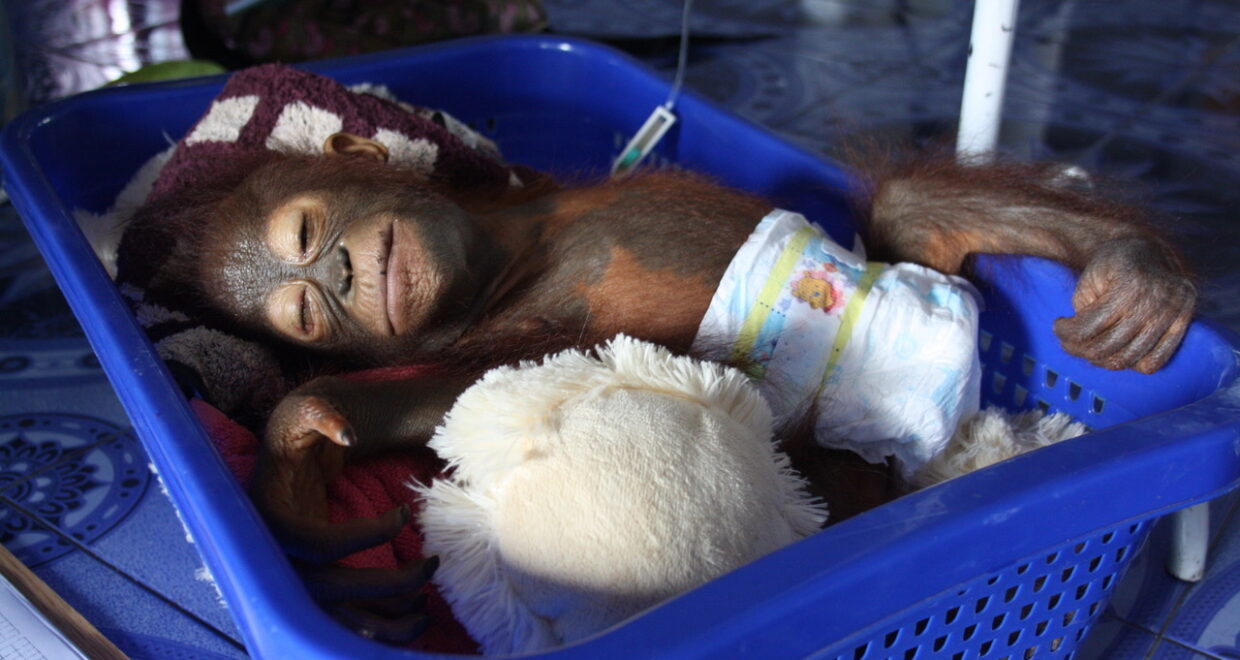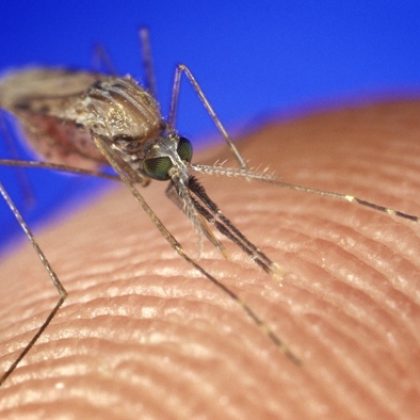Malaria in non-human primates: importance for conservation and as an analogue of human malaria
The latest Paper of the Month for Parasitology is ‘Naturally acquired immunity to Plasmodium pitheci in Bornean orangutans (Pongo pygmaeus)‘ and is freely available for one month.
Malaria is a parasitic infection caused by Plasmodium spp. Human plasmodial parasites are a major cause of morbidity and mortality, infecting hundreds of millions of people annually, especially in areas of endemicity. The serious health effects of malaria in humans, subject to programmes of global eradication, are well-known.
Malaria parasites also infect non-human primates (NHPs). Plasmodial species diversity in NHPs is high, and where the geographical distribution of NHPs significantly overlaps with human malaria endemicity areas, they may act as reservoirs for human malaria. NHP plasmodial species have also reportedly crossed species barriers and zoonotically infected humans, and vice-versa. Natural infection with Plasmodium spp., sometimes with high prevalence, are widely reported in populations of great apes within their range, with unknown clinical implications.

This study was conducted in a population of wild Bornean orangutans (Pongo pygmaeus) undergoing rehabilitation at a Rescue Rehabilitation Centre (RRC) in West Kalimantan, Borneo. The study spanned over a decade of observations, and evaluated the health impacts as well as epidemiological characteristics of orangutan malaria caused by Plasmodium pitheci, a malaria pathogen that uses the orangutan as its natural host. Plasmodium pitheci infection, endemic in the orangutans at this RRC, was found to cause moderate to severe illness in 14% of infected orangutans, providing evidence that this parasite can be pathogenic in orangutans as their natural host. This study suggested that diagnostic criteria and treatment of acute malaria illness works similarly as in humans. Furthermore, the study investigated aspects of malaria immunity in orangutans which is influenced by age and exposure, suggesting the existence of a natural non-sterilising immunity resembling that in humans which affects malaria outcomes. Interruption of natural exposure to malaria in orangutans might impair protection from serious illness.

Bornean orangutans are categorized as critically endangered by the IUCN due to habitat loss and fragmentation, hunting, poaching, and human conflict. In addition to these threats, vulnerable populations might be at risk of infectious diseases such as malaria. Wildlife diseases have been found to play a role in wildlife population declines. Unfortunately, the study of diseases in free-living wild orangutans comes with conspicuous difficulties. RRCs across the orangutan range, in conjunction with the Ministry of Environment and Forestry (MoEF) of the Indonesian Government, conduct the rescue and rehabilitation of wild orangutans displaced from their habitats, or which are victims of human-wildlife conflict or the pet trade, with the ultimate goal to reintroduce them back to the wild. These RRCs provide a unique opportunity to study pathogens and diseases.

Changes in behaviour and ecology of orangutans at RRCs might facilitate malaria transmission, increasing malaria susceptibility, morbidity and mortality, and increasing the risk of potential detrimental health effects from malaria infection. The same detrimental conditions might be occurring in disturbed/human-modified habitats where threatened populations of orangutans are forced to live. Climate change might also have negative effects in the seasonality of diseases such as malaria. Conservation strategies for orangutan populations at RRCs as well as free-roaming populations should include consideration of vulnerability to P. pitheci.
All great ape species across Africa and Asia are considered endangered. The impact of unmitigated exposure to infection by Plasmodia on great apes is primarily a matter of clinical concern for their conservation, but also of scientific interest as an analogue of human malaria.
The paper Naturally acquired immunity to Plasmodium pitheci in Bornean orangutans (Pongo pygmaeus) by Karmele Llano Sánchez, John Kevin Baird, Aileen Nielsen, Andini Nurillah, Fitria Agustina, Komara, Fina Fadilah, Wendi Prameswari, Raden Taufiq Purna Nugraha, Sugiyono Saputra, Arif NurkanAnik Budhi DharmayanthRahadian Pratama, Indra Exploitasia and Alex D. Greenwood, published in Parasitology, is available free for a month.






